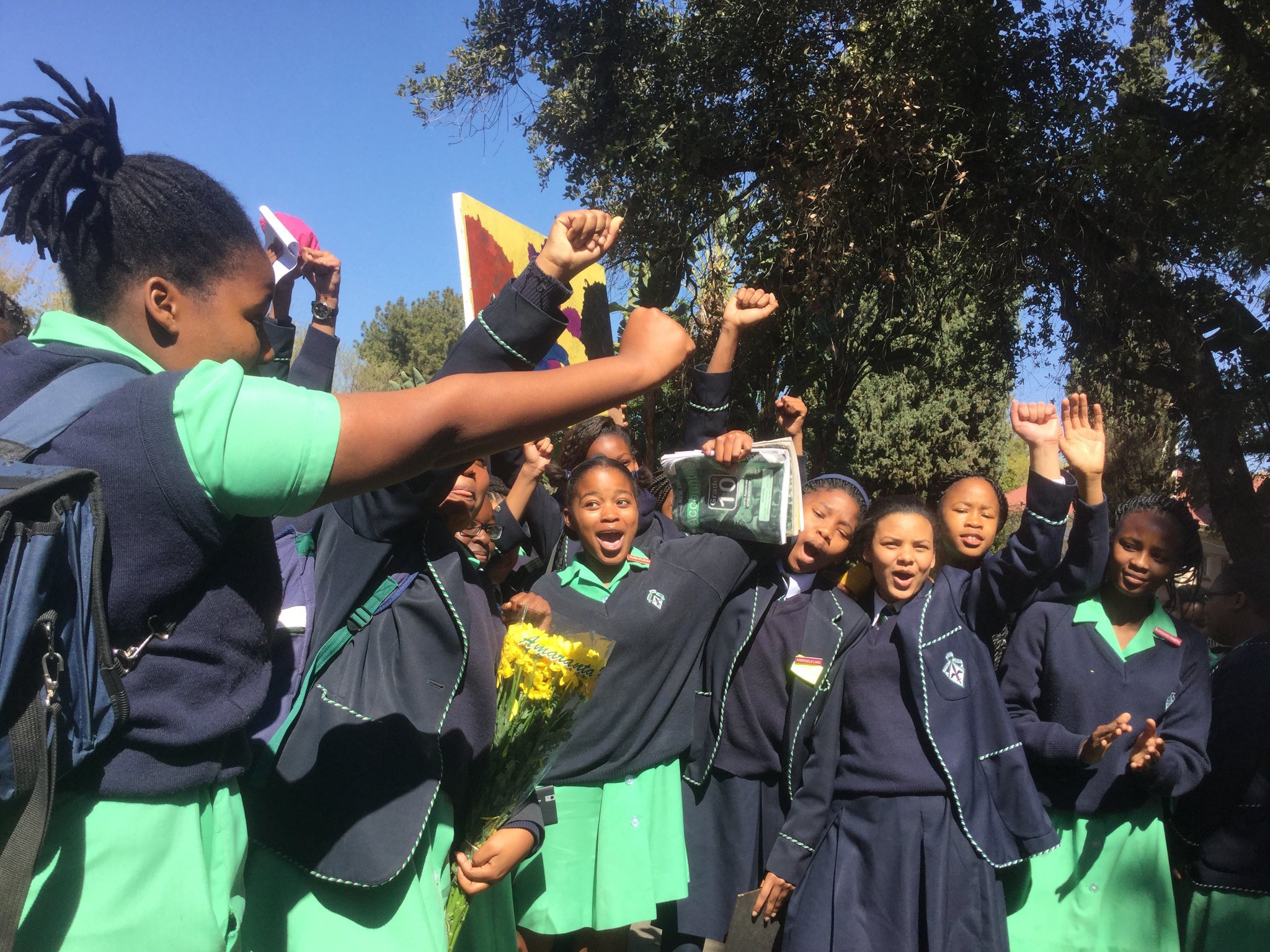Year In Review: Another pivotal year in the fight for better education
Updated | By Silindelo Masikane
Education has long been a hot-debated topic in South Africa.
The apartheid regime used education as a tool to diminish black people's history, culture, and identity. It promoted myths and racial stereotypes in its curricula and textbooks. The 1976 Soweto Uprising became the catalyst of what would be the beginning of the end of apartheid. One of the biggest challenges facing the democratic government has been to fix the education system, and to provide South Africans with an opportunity to improve their lives through education.

But where is our basic education system in 2016? 22 years into democracy it is undeniable that education has undergone a major transformation. The rights contained in Section 29 of the South African constitution makes it clear that everyone has the right to basic education and that the state is obligated to promote and provide an education system that will address the need of the people. 2016 saw the spotlight yet again fall on the state of education - both on basic and tertiary levels. #FeesMustFall protests dominated media platforms and conversations in homes and around the braai

The Department of Basic Education was slammed for failing to meet the November deadline to implement the norms and standards for public schools, that is supposed to hold government accountable for the provision of infrastructure. The department only managed to renovate 31% of schools lacking adequate infrastructure over the past two years. Some 500 schools have been identified by the department, which are built from asbestos, mud, metal and wood.

One of the lowlights of 2016 saw almost 30 schools torched in a demarcation dispute in Limpopo. Vuwani residents protested for months against the creation of a new municipality. This led to the suspension of teaching and learning in the area, with learners falling further and further behind the curriculum.
2016 was also the year that young black girls challenged the status quo - shedding light on a number of racist and discriminatory codes of conduct at schools.

A group of teenagers from Pretoria Girls High stood up and told stories of how they were forced to straighten their hair and insulted when they wanted to keep their hair in Afros. The protests sparked a debate across the country and encouraged girls in other schools to expose their own schools codes of conduct. The outcry prompted the Gauteng education department to review all school codes of conduct in the province.

The Department of Basic Education threw a lifeline to learners struggling with mathematics in 2016. The department instructed public schools to condone all Grade 7 to 9 pupils who passed all of their other subjects but failed maths- a compulsory subject to pass. The decision was met with mixed reaction.
There was also yet another exam leak in Limpopo, this time a Maths Paper 2 in Giyani. Law enforcement worked together to nab a suspect, who is currently facing criminal charges.

This year has once again demonstrated the pivotal role education plays in the fabric of our society. As we head into 2017, much more needs to be done to improve our education system.
But 2016 has also shown us the resilience inherent in pupils and students in the fight for a better, more equal and just society.
Show's Stories
-
Pregnancy announcement on plane has people confused
What looked like a sweet pregnancy announcement seems to have conjured u...
The Workzone with Elana Afrika-Bredenkamp 2 hours ago -
A business idea that stemmed from nostalgia - a pap drink
"Pap was the only way I thought could stand out so I grabbed a pot and m...
The Workzone with Elana Afrika-Bredenkamp 2 hours ago